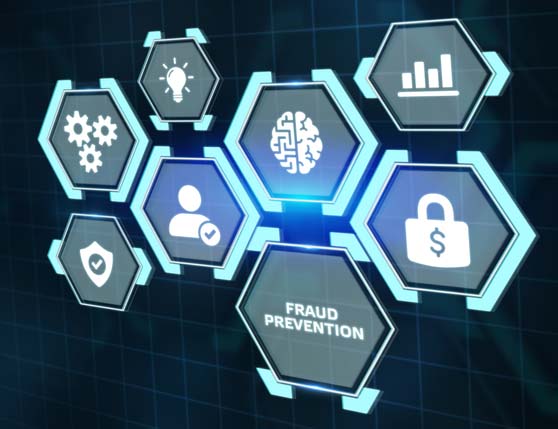OrboNation Newsletter: Check Processing and Fraud – September 2023
Washington Post: “Checks Are Dead”…Not So Fast!

This proclamation comes from reporter Andrew Van Dam in a recent article from the Washington Post.
In a few years, comically oversized foam-board novelty checks will be the last remaining evidence of a 20th-century icon, as the paper check goes the way of the landline phone and the floppy disk. Even the most dubious cliché of the past century — the promise that the check’s in the mail — has fallen from common usage.
Van Dam points to a few data points to prove his point:
- In the early 2000's, 6 out of every 10 noncash purchases, gifts and paid bills were handled with checks. Now, just 1 in 20 are paid with paper checks.
- In 2003, the FED ran 45 check-processing centers. In 2023, the FED only runs one (Atlanta).
- In the Survey and Diary of Consumer Payment Choice, only 4% of transactions were made with paper checks (see chart on the right).
So, it's safe to assume that paper checks are dead, right? Not so fast! While providing some interesting data points, there are several gaps in the author's argument...
Bit Builders, Inc. Delivers Turnkey Image Fraud Detection with OrboGraph
Integration of OrboGraph’s OrboAnywhere Fraud Module
with Bit Builders’ NextGen Digital Banking offers stand-alone platform

Burlington, MA, September 20, 2023 – OrboGraph, a global leader in check and payment processing automation, has proudly announced a business partnership with Bit Builders, Inc., creators of the NextGen Digital Banking platform. The collaboration provides an industry-leading platform financial institutions can leverage to deter check fraud at the paying bank as well as the depositary financial institution.
Check Fraud Featured at FraudCON 2023
Speaking at this year's FraudCon 2023, Dr. David Maimon, a professor and Next Generation Scholar in the Andrew Young School of Policy Studies’ Department of Criminal Justice & Criminology at Georgia State University, provided attendees with the latest data and schemes on check fraud from the dark web.
As you may remember, Dr. David Maimon is the founder and and director of Georgia State University’s Evidence Based Cybersecurity Research Group. Dr. Maimon has been at the forefront of research of the dark web check fraud phenomenon, analyzing data way back in 2021.
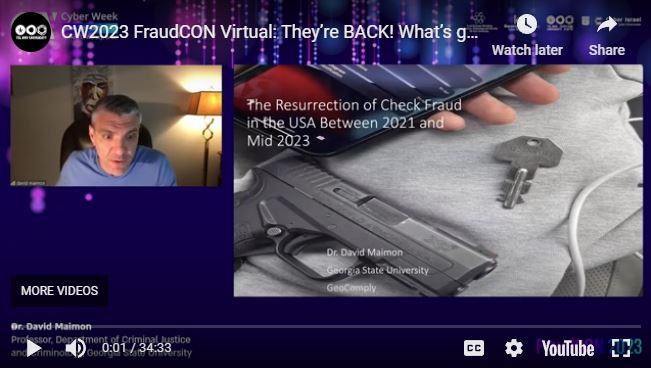
GPU Cost vs. Performance: Assessing Financial Institutions’ Artificial Intelligence Needs

In the ever-evolving landscape of technology, demand for processing power has grown exponentially -- particularly in the realms of artificial intelligence (AI) and data analysis.
Central Processing Units (CPUs) have long been the backbone of computing -- particularly in banking. However, Graphics Processing Units (GPUs) have emerged as a game-changer, outshining CPUs in processing capabilities, especially for data-intensive tasks like AI.
Let's take a deeper dive into the superiority of GPUs over CPUs and explore how banks can affordably leverage GPUs for AI technology adoption.
The Enterprise World: OrboGraph Featured in “Most Trusted Banking Tech Solution Providers in 2023”
We are pleased to announce that OrboGraph -- along with its OrbNet AI and OrbNet Forensic AI -- has been featured in The Enterprise World's latest digital magazine: Most Trusted Banking Tech Solution Providers in 2023.
As noted in the magazine, banking tech solution providers play a pivotal role ushering in a new technological revolution for financial institutions:
In today's rapidly evolving financial landscape, the role of banking tech solution providers has become increasingly pivotal. These providers are the architects behind the technological innovations that power modern banking operations, offering a lifeline to financial institutions striving for efficiency, security, and customer-centric services...
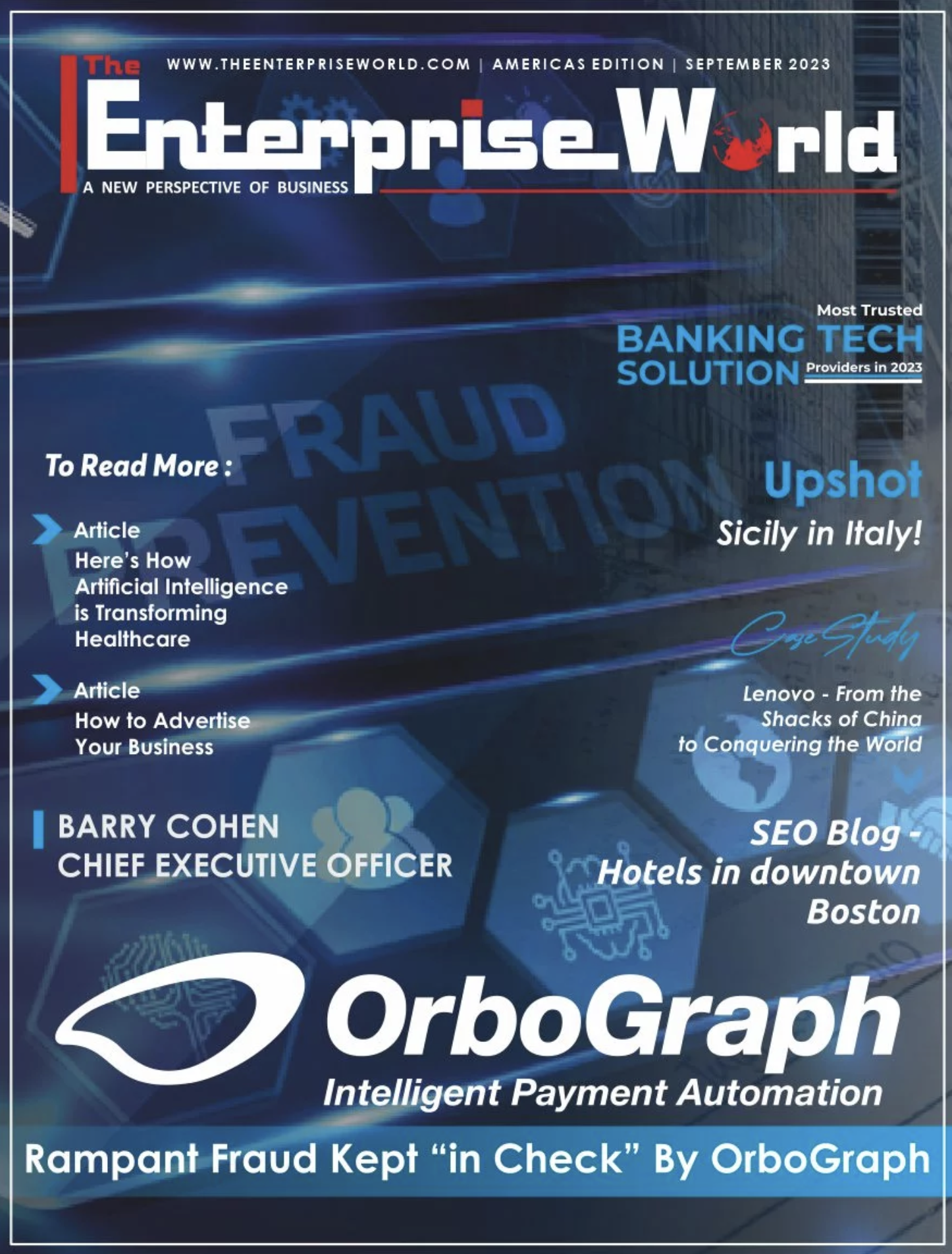
BAI Podcast: “Check Fraud is Back, and It’s Back with a Vengeance”
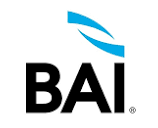
The latest BAI podcast features Greg Kanevski of ServiceNow discussing the impact of rising fraud on financial institutions and steps they can take to better shield themselves and their customers from fraudster activity.
When asked about the reported resurgence in check fraud and if that aligned with what he'd been observing, Mr. Kanevski points out statistics from the FED and SARs reports over the past few years, along with data from the ABA Journal...
Updating Legacy Systems: 62% of Firms Use Legacy Payments for Commercial Goods
A new PYMNTS article explores the challenges facing businesses when it comes to updating legacy systems to embrace and take advantage of modern workflow solutions.
Unfortunately, many firms find themselves facing a reinvention of their systems.

Many simply don’t want to, and it is holding them back.
Firms shackled by legacy systems frequently struggle to meet customer expectations, falling behind competitors who embrace modern technologies and adapt to changing market dynamics.
What’s more, incompatible legacy systems create silos, impeding data flow and collaboration within organizations, as well as expose firms to security vulnerabilities, leaving them susceptible to cyber threats in an ever-evolving digital landscape.
Financial Crimes: FIs Need to Improve Fraud & AML Response Times
Financial crimes encompass all payment channels for financial institutions. Unfortunately, many FIs still continue to silo different facets, including AML and check fraud. While this separation enables operations to concentrate internal resources to specific purposes, it also leads to less-effective fraud strategy.
As we noted in an earlier post, there was a 50% increase in AML fines levied in 2022. According an article posted on Tearsheet, the US owns a significant portion...
YouTubers Standing Up to Check Fraud
YouTube's reach and availability make it a great platform for education -- particularly in a society where many simply use a search engine like Google to answer any questions they may have. In the past we've pointed out YouTubers like Infamous Ghost Money , retired FBI agent Jerri Williams, and even former criminal-turned #FraudFighter Black Zack, who provide valuable information about check fraud techniques and how to avoid being scammed.
There are also YouTubers like Jack Alderman who are able to break down check fraud information and scams for the everyday people.
ICBA: Assessing Potential Fintech Partners — Evaluate the Tech & Reputation
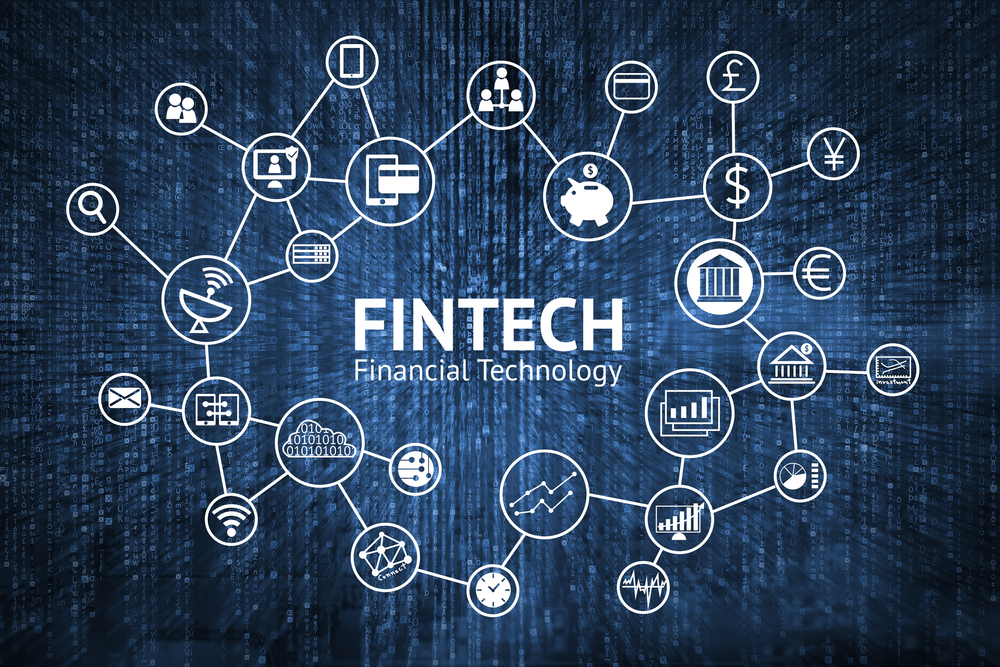
A common theme that is "top of mind" for banking executives is moving off legacy systems to embrace and take advantage of modern workflow solutions.
As noted by PYMNTS.com, there are factors preventing certain businesses from updating legacy methods, including:
- Requires "heavy lifting" or a significant amount of work/internal resources
- Capital investment
- Affects current vendors and contracts
However, most FIs are not going at this alone -- instead, they rely upon fintech partners to assist in upgrading their systems to the latest and greatest.
Check Baking: More Dangerous Than Check Washing?
A new YouTube video by Debra Richardson, who specializes in providing vendor process guidance to avoid fraud, fines, and bad vendor data, identifies a particularly pervasive form of check fraud called check baking.
She explains that whereas "whitewashing" checks entails erasing and replacing information on a check, check baking involves taking a picture of a check signature and then Photoshopping the signature onto an easily-created fake check, which has the routing number and bank account number needed to carry out the transaction....

Check Fraud: Stolen Checks Open the Door for Identity Theft

In an overview of the ins and outs of check fraud, Experian points out that this type of fraud won't necessarily impact your credit. However, they warn that "criminals who steal checks from your mail or scam you into sending them money might also collect other personal information and try to steal your identity."
Small-to-Midsize FIs: Blending Technology with Customer Service
At Jack Henry FinTalk, Melanie Reneris waxes nostalgic about the local bank she frequented in her hometown. At the time, "banking was synonymous with community," and when she visited her local branch to deposit her paper route earnings, Melanie could be assured there would be small talk and interactions with tellers and managers she'd known "quite literally – my entire life."
And, who can forget "deposit tubes"?

The technology was mysterious and basic. Noisy hydraulic tubes moved deposits from an outdoor drive-through kiosk to a teller inside and then came back again with a receipt and a lollipop. A special printer out back and out of sight updated my passbook’s interest entries neatly.
Though deposit tubes still exist, the rest of the "tiny local bank" package did not last, of course.
Why A Multi-Layered Technology Approach Is Needed For Check Fraud Detection

Financial institutions are in the unenviable position of taking on the brunt of check fraud. While, in an ideal world, banks could partner with a single vendor and utilize their solution to detect all check fraud attempts before any funds are lost, this is simply not the case. And, while there are vendors who will claim that their solution can work alone, this is demonstrably NOT the case.
